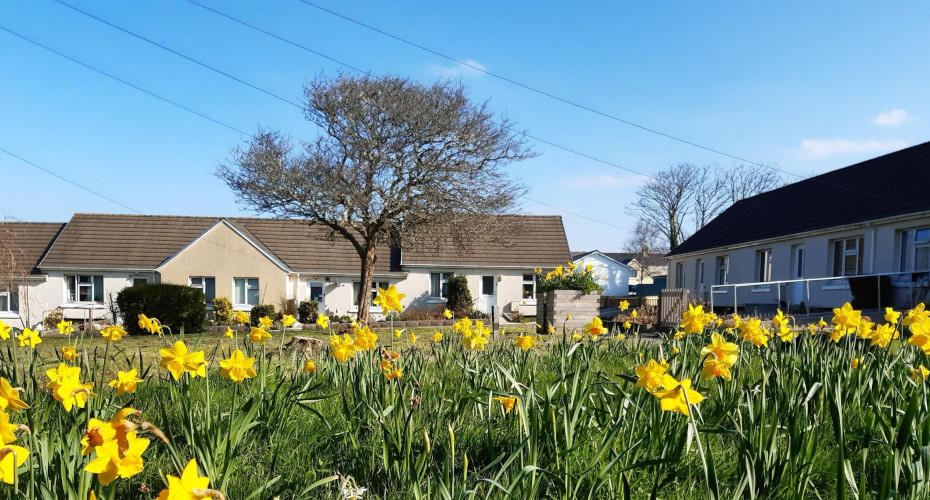Cornish business boost from more than £500,000 of University of Exeter led grants and research

Since 2016, the European Centre for Environment and Human Health (ECEHH) – which is part of the University of Exeter in Cornwall – has supported more than 150 businesses in the region by providing access to grants, business development resources, and funding for innovative technologies.
Two ground-breaking projects which benefited local SMEs to the tune of more than half a million pounds were Smartline and The Inclusivity Project, both supported by funding from the European Regional Development Fund (ERDF).
Chris Evans, Director of Innovation, Impact and Business at the University of Exeter said: “The impact these projects have made on Cornwall’s economy, community and innovation ecosystem shows what is possible when universities and businesses work together in partnership.”
The ECEHH, which conducts world-class research into the complex connections between the environment and health, spearheaded the projects, uniting academic expertise with business innovation.
The six-year Smartline project explored how digital technologies can support local residents’ health and wellbeing by improving housing and social connections. The team has worked with more than 300 social housing residents from Coastline Housing in Cornwall, installing sensors in homes to collect data on air temperature, relative humidity, and air quality. The partnership with Coastline also facilitated SMEs in engaging with tenants and supported innovation.
Mark England, Head of Innovation, Maintenance and Group Procurement at Coastline Housing, said: “Being able to understand the conditions within homes is really valuable to us – people don’t always reach out when they are struggling, and being able to intervene early on can make a big difference.
“Reacting to the data provided by these sensors is so important and will be a key part of rolling out this pilot project on a wider scale. By combining the data with human intervention and working with other agencies, we can help prevent problems becoming crises and target support where it’s most needed.”
Alongside in-depth research into home environments, the project supported a wide range of SMEs. From using facial recognition technology in healthcare settings to testing out alternative heating systems, developing sleep consultancy to supporting new fathers, they all shared an interest in the power of digital technologies to improve health and wellbeing.
One such business was TouchByte, an exciting Cornish IT business that is developing ground-breaking facial recognition applications.
Jeremy Sneller, Managing Director of TouchByte said: “Support from Smartline enabled us to address the main challenge of getting the health sector to accept facial recognition technology and allowed us to put it in. We worked closely with the University of Exeter team who helped us with initial research and support to create a contactless access control product for the Health and Care marketplace. This has helped in positioning us as a suitable acquisition partner for Salto.”
The Inclusivity Project focused on businesses in Cornwall and the Isles of Scilly, such as Software Cornwall and Cornwall Museums Partnership, to understand and address the challenges that employers have towards creating inclusive workplaces.
Amongst those supported to develop new services and offers to customers were Akumen in the creation of new mental health and diversity training modules, iCareiMove in developing a new menopause training course for workplace wellbeing, and Virtual Hippowith a new immersive VR programme to support people with stress, anxiety and/or chronic pain.
Another business supported by The Inclusivity Project was Ocean 3D. The team create interactive virtual tours that almost anyone can access on a 4G/ 5G or Wi-Fi connected smartphone, tablet or desktop. The tours help people remotely navigate new or unfamiliar locations to aid journey and destination planning. The company was using a legacy system to scan venues and create the tours, but thanks to funding was able to upgrade to the latest state-of-the-art Matterport Pro 3D camera.
Chris Wood, Director of Ocean 3D explained: “This is a much-needed requirement for many people who suffer with general anxiety but, is a particular need for people with certain physical and mental conditions or disabilities. The Inclusivity Project helped us invest in new scanning technology, enabling more accurate and detailed scanning of locations which, in turn, delivered a more interactive and fulfilling solution for end users.”
The projects were supported by ERDF funding, alongside match-funding from the University of Exeter and funding from Cornwall Council. The ERDF helps local areas stimulate their economic development by investing in projects which will support innovation, businesses, create jobs and local community regenerations.
SMEs from Cornwall and the Isles of Scilly who would like to explore future opportunities working with the University of Exeter should visit the Good Growth CIOS Fund website to view current funding opportunities.



